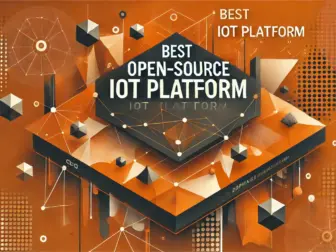Tag - IoT programming
The World of IoT Programming: A Comprehensive Guide to Developing Smart Solutions
IoT programming, also known as Internet of Things programming, is the process of designing and developing software for interconnected devices that communicate with each other over a network. This emerging field is revolutionizing the way we interact with technology, allowing for seamless integration of smart devices into our everyday lives.
One of the key components of IoT programming is creating applications that can collect, analyze, and act on data from connected devices. This requires a deep understanding of both hardware and software, as well as knowledge of networking protocols and security best practices. IoT programmers must be able to work with a variety of technologies, including sensors, actuators, and cloud services, to build scalable and reliable solutions.
When developing IoT applications, programmers often use a combination of programming languages, such as C, C++, Python, Java, and JavaScript. Each language has its strengths and weaknesses, and the choice of language depends on the specific requirements of the project. For example, C and C++ are commonly used for low-level programming and device drivers, while Python and JavaScript are popular for web development and data analysis.
IoT programming also involves working with a variety of hardware platforms, such as Arduino, Raspberry Pi, and BeagleBone. These platforms provide a foundation for building IoT solutions, offering a range of features and capabilities for developers to leverage. Programmers must be able to interface with sensors and actuators, manage power consumption, and optimize performance to ensure that their applications run efficiently.
In addition to coding skills, IoT programmers must have a strong understanding of networking concepts, such as TCP/IP, MQTT, and HTTP. These protocols enable devices to communicate with each other and with cloud services, allowing for real-time data exchange and remote control. Programmers must also consider security implications when designing IoT solutions, implementing encryption, authentication, and access control mechanisms to protect sensitive data.
As the Internet of Things continues to grow, the demand for skilled IoT programmers is also on the rise. Companies across industries are investing in IoT solutions to improve efficiency, reduce costs, and enhance customer experiences. This presents a unique opportunity for developers to explore new technologies and contribute to the advancement of IoT programming.
Overall, IoT programming is a challenging yet rewarding field that offers endless possibilities for innovation and creativity. By mastering the skills and technologies required to develop smart solutions, programmers can play a key role in shaping the future of connected devices and transforming the way we live and work.
